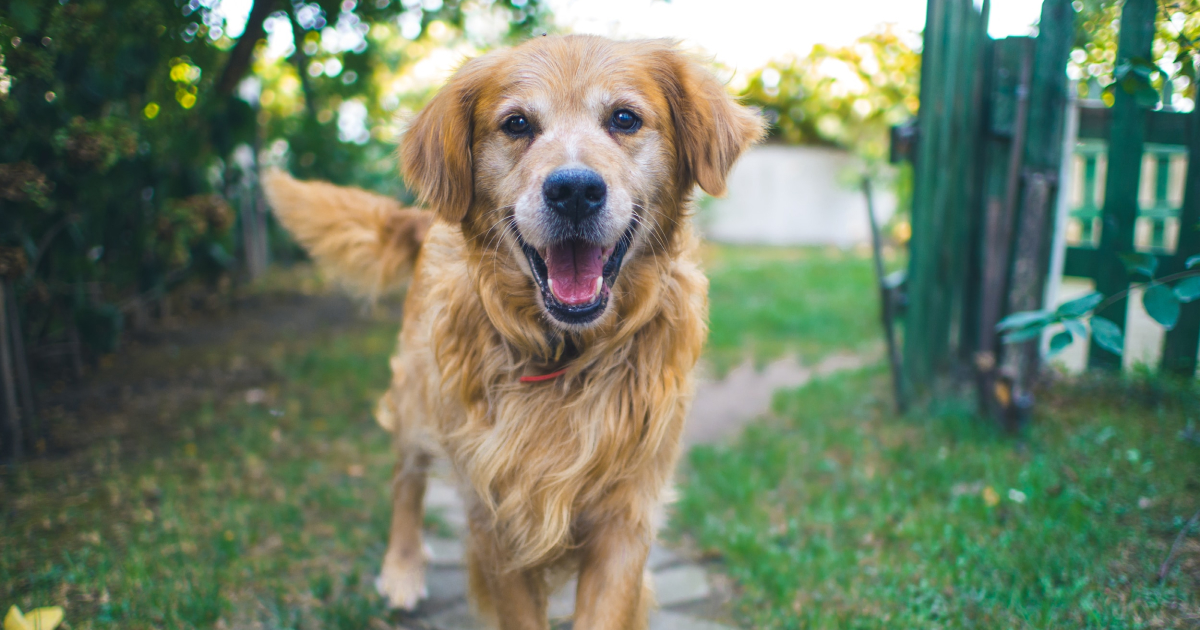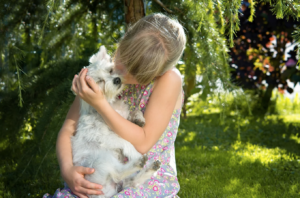The Pet Parent’s Guide to Caring for and Adopting a Senior Dog
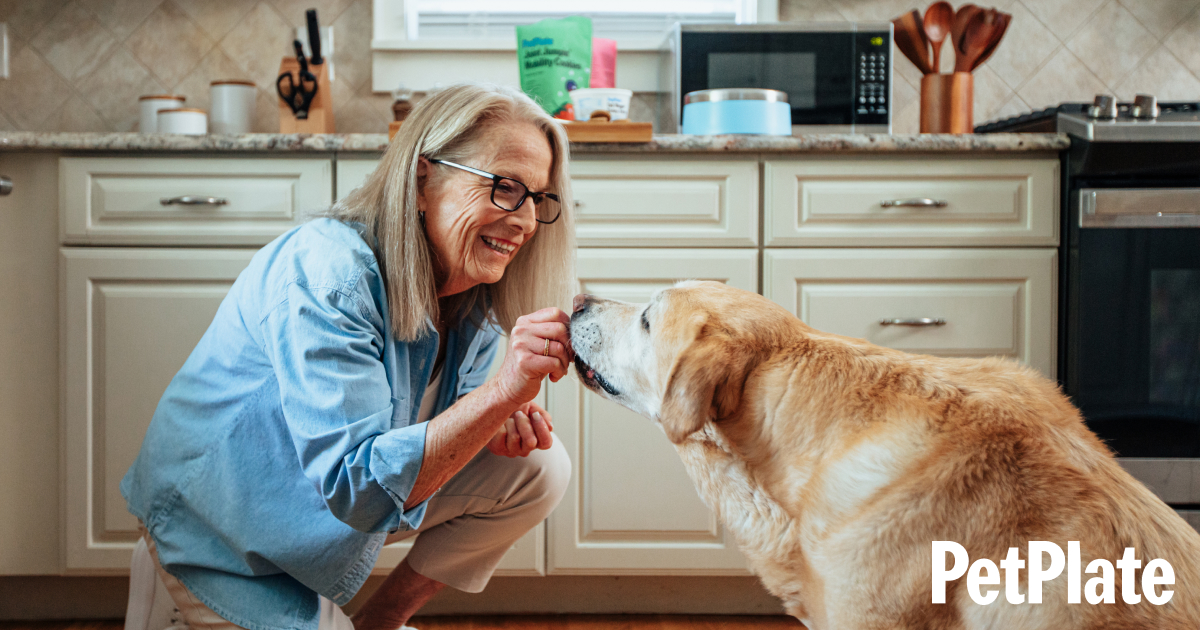
Did you know that November is Adopt a Senior Pet Month? If you’ve been thinking about adopting another pet, a dog in its golden years could be an outstanding choice. You may never have considered the possibility of adopting an older dog, but if you do, it could turn out to be one of the most satisfying and rewarding experiences of your life. Senior dogs still have a tremendous amount of love to give. Their gratitude and loyalty will inspire you and leave you with fond memories that will last a lifetime.
Benefits of Adopting a Senior Dog
When you bring a senior dog into your home, you’ll be getting a pet that already knows what it is like to share its life with a human family (and, in many cases, with other pets). The depth of their love will be immense, and your family will form bonds with them that are as deep and abiding as any you’ve ever experienced with a companion animal.
Here are some of the best reasons to adopt a senior dog:

Senior dogs are often less demanding
Young dogs will keep you busy monitoring their rambunctious behavior, forcing you to chase after them to ensure they don’t get into trouble or damage anything in your home.
In contrast, older dogs are more settled. Their super-active puppyhood is well behind them, and they will usually be satisfied with life’s simplest pleasures (i.e., good food, leisurely walks, lots of petting and even more sleep).
Senior dogs may require less training
The typical senior dog will have been at least partly trained in the past. At the very least, they will have learned some important dos and don’ts from previous experiences living with people. A senior dog likely won’t have any highly destructive habits you have to break or control (they don’t have the energy for that) and, therefore, won’t have to be watched all the time.
Senior dogs are great companions
With a senior dog, you’ll discover you’re in the company of a thankful and devoted companion who is loving, attentive, well-behaved, and willing to follow you wherever you lead them. Content with a modest amount of playful frolicking, they will savor all the peaceful and quiet moments you spend together as if sensing that the magical times won’t last forever.
Senior dogs are less likely to get adopted (and you can help rectify this)
Adopting any dog is an act of love. But if you adopt an older dog, you’ll be helping to address a pattern in adoption that prevents many worthy and wonderful animals from finding the good homes they deserve. You’ll be making a decision you can feel really good about personally. At that same time, you’ll be setting an example that others who know you may want to emulate.
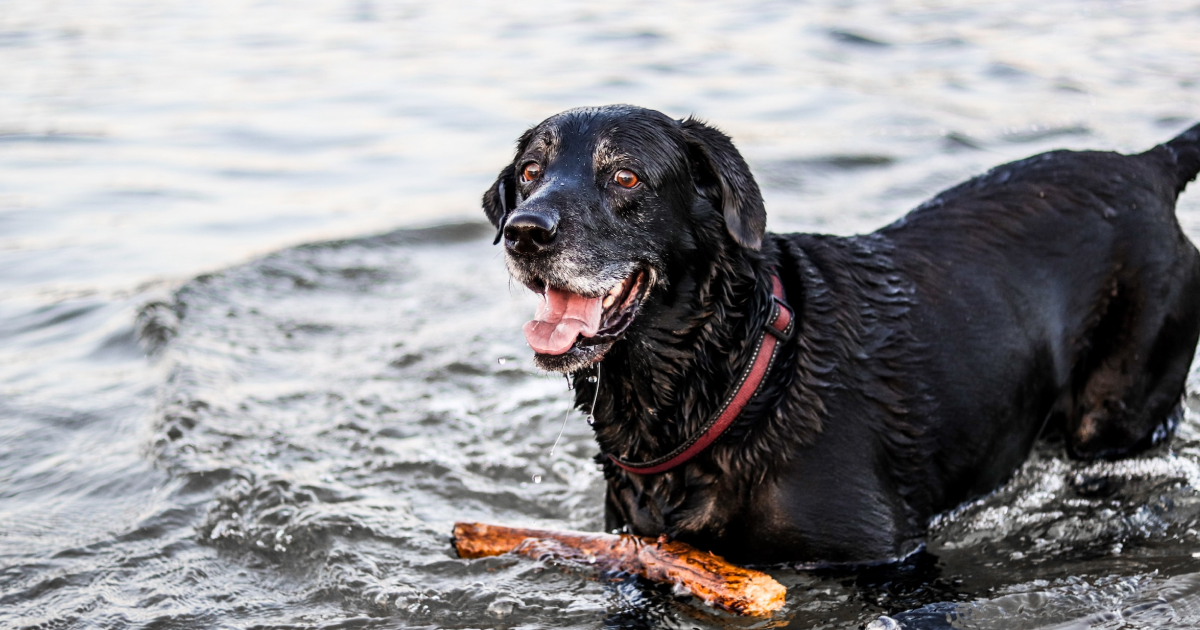
Adopting a Senior Dog Tips
Adopting a senior dog can be rewarding for you and your new canine companion. But you should be prepared for what comes next.
To make sure your senior dog’s transition goes smoothly, you should:
Research the breed carefully
This is especially critical if you’re considering adopting a breed that you’ve had little or no exposure to. You’ll need to know about grooming requirements, food preferences, how much play and exercise they need, what health problems might crop up in the future, and more.
Be ready for an adjustment period
It may take several days or weeks before your dog feels safe and comfortable in your home. You should accept this and do everything possible to make your senior dog feel noticed, appreciated and loved. A calm and gentle approach works best, and you should try to keep your home environment as quiet and peaceful as possible in the beginning.
Customize your home for your new companion’s arrival
Before bringing your senior dog home, you should stock up on healthy, vet-recommended food, make sure you have all the medicines they’ll need in plentiful quantities, and construct a comfortable resting/sleeping nest for them in a warm and quiet place. If they have mobility issues, you should consider installing ramps as replacements for steps and make other modifications to eliminate any obstacles they might struggle to navigate.
When you bring them home, introduce them to your other pets in controlled doses
Senior dogs are usually agreeable toward other animals, but the opposite may not be true. That’s why you should start with initial exposures of extremely short duration and only increase the contact when your senior dog seems comfortable, and your other pets seem accepting.
Ask for a complete medical and behavioral report from the shelter
You need to be aware of any and all physical, mental, or emotional challenges your new dog might be encountering in the latter stages of its life. If you become aware of any issues, you must honestly evaluate your readiness to take on the financial and emotional responsibilities associated with the dog’s condition.
Arrange to have your new dog checked out by your vet
Even if the shelter has given your senior companion a clean bill of health, you should still have your veterinarian do a complete and comprehensive examination. They may detect underlying health issues that the shelter either missed or misidentified.
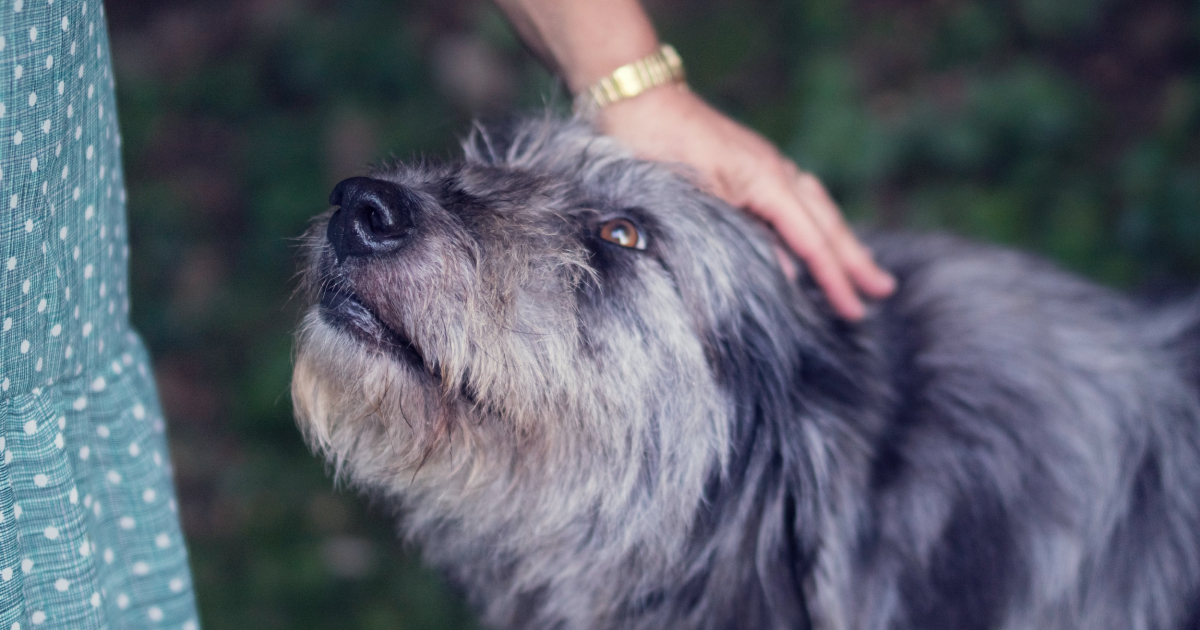
A Guide to Senior Dog Healthcare
No senior dog can avoid age-related decline and the health troubles accompanying it. If you stay super-observant and respond to their health problems early, treatment will be less complicated and more likely to produce positive results.
With a senior dog, it’s better to be overcautious than to ignore your instincts, and not take your dog to the vet until it’s too late. Their age makes them more vulnerable to illness and prone to developing chronic health conditions, and that’s why it’s smart to be concerned.
Senior Dog Healthcare
Your senior dog will inevitably develop health problems that require intervention. While no dog lives forever, your senior dog can still enjoy many years of happiness and good health if you respond quickly and decisively to signs and symptoms of illness or physical and mental breakdown.
Some of the most common health challenges senior dogs will face include:
Obesity
Less activity and slowing metabolism put older dogs at significant risk for obesity. To combat it, you’ll need to gradually reduce their caloric intake until you begin seeing noticeable results. You don’t want them to lose weight too fast (slow but steady is the key here), and you must ensure their diet remains nutritionally balanced and complete.
Arthritis
Many senior dogs will experience joint pain caused by osteoarthritis. As a result, they will begin to move more slowly, and because they’re in pain, they may be reluctant to play or go for walks. Once your vet has diagnosed arthritis, they may prescribe anti-inflammatory medications or recommend joint supplements like glucosamine and chondroitin (which are available from PetPlate). They will likely encourage you to keep your dog moving as well.
Cognitive Decline
Forgetfulness, confusion, memory loss, sleeping troubles and fits of unprovoked anxiety are symptoms of cognitive dysfunction syndrome (CDS), the dog version of dementia. This condition may be irreversible in the long run, but with your veterinarian, you can make your senior dog’s life easier by giving them anti-anxiety medications and supplements to counteract insomnia.
Hearing and Vision Loss
Sensory abilities frequently degrade during a dog’s golden years. If hearing and/or vision loss is acute, it will obviously impact their behavior. As long as you’re attentive, you should be able to tell when they’re having problems hearing or seeing things. You can then adjust your behavior accordingly. If vision loss is suspected, a trip to the veterinarian is also in order in case the dog has a condition that needs treatment, like glaucoma or cataracts.
Urinary Incontinence (with or without Kidney Disease)
Senior dogs may start to lose bladder control, necessitating taking them out for walks three or four times a day, and maybe even more frequently if the problem is severe. Dog diapers could be another option if indoor urination remains a problem. Urinary incontinence absolutely requires a visit to the vet since it could be caused by a treatable urinary tract infection or some type of illness. Constant drinking of water plus frequent urination could be a sign of kidney disease. If this debilitating condition is diagnosed, rapid medical intervention is especially vital.
Cancer
A dog’s vulnerability to cancer grows as they age, and anyone who adopts a senior dog should be aware of the risk. The potential signs of cancer include:
- Abnormal lumps or bumps
- Regular vomiting or diarrhea
- Weight loss or a decline in appetite
- Sores that never heal
- Difficulty going to the bathroom or breathing
- Sluggishness and lethargy
- Restlessness that suggests physical discomfort
A veterinarian will be able to diagnose cancer by taking a blood exam.
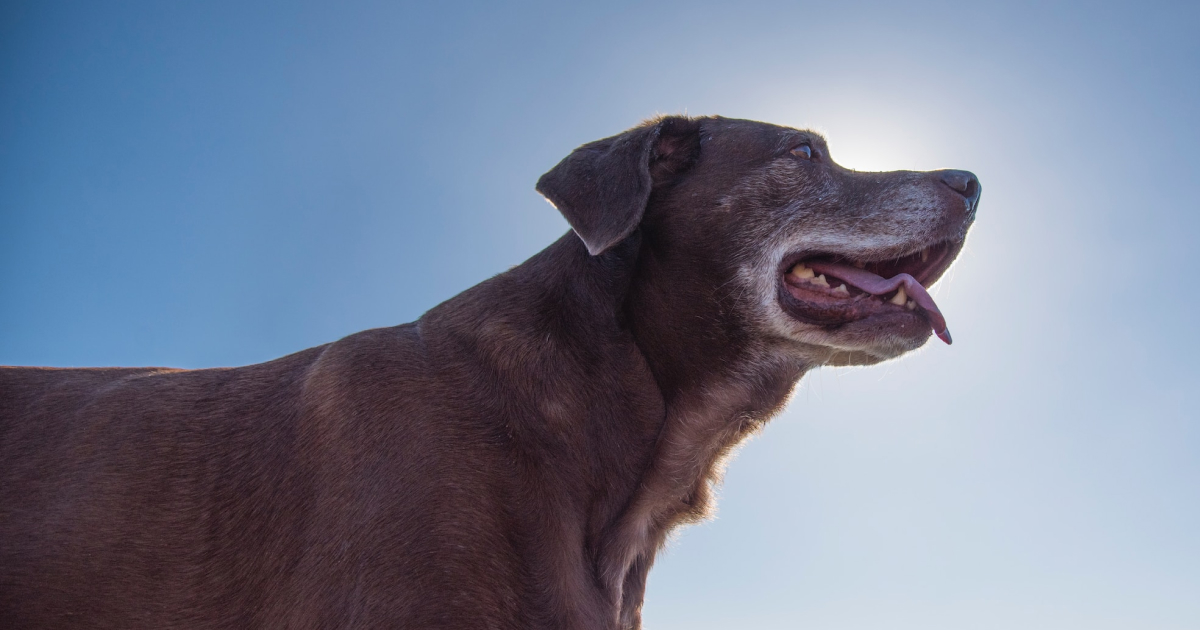
Senior Dog Dental Care
Dental issues can arise at any point in a dog’s life, and they are more likely to occur in senior dogs. An older dog losing teeth can signify tooth and gum infection (periodontal disease). In addition to a senior dog bad breath problem, this development can increase your companion’s risk for heart disease and kidney disease.
To increase your senior dog’s odds of avoiding severe dental issues (or overcoming them if they’ve already developed), you should brush your dog’s teeth at least once daily. Dog dental care products like senior dog dental chews, dental drops or other products that reduce bacteria are also helpful. Regular professional cleaning should also be essential to your overall senior dog dental care program.
Senior Dog Food
Senior dogs have a slower metabolism than younger dogs and can also have more problems digesting foods and absorbing nutrients.
To keep your older dog sharp, vital, and active, you should feed them a diet that includes the following:
- Whole foods rather than processed commercial dog foods
- Ample quantities of nutritionally balanced senior dog wet food instead of an over-dependence on dry food
- Foods high in omega-3 fatty acids, like fish and egg yolks, to promote good brain and skin health
- Homemade bone broth for bone and joint support
- Pumpkin, which can add much-needed fiber to a senior dog’s diet
- Steamed dark green vegetables, like spinach or broccoli, which provide essential vitamins and cleanse the blood
- Probiotics and enzymes to aid digestion
- Joint supplements like glucosamine and chondroitin, fish oil and vitamin C, and other recommended vitamins for senior dogs
Home-delivered PetPlate meals feature all the essential elements senior dogs require to live a long and healthy life. Ingredients are specially selected and prepared to meet all dogs’ most critical nutritional needs. Older dogs, in particular, will benefit from the complete package of vitamins, minerals and other nutrients that PetPlate foods offer in abundance.
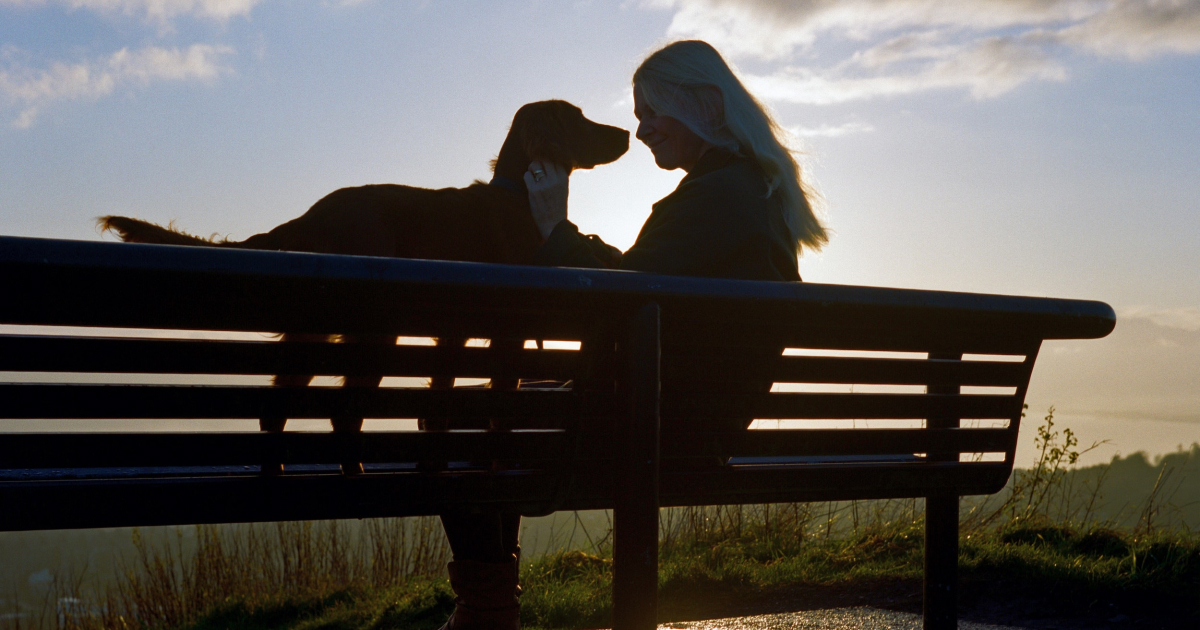
Senior Dog Exercise and Playtime
Dogs need to stay active at every stage of their lives. Making sure your senior dog keeps moving and playing and enjoying the outdoors will keep their joints, muscles and heart functioning correctly while also preventing them from gaining too much weight.
Older dogs will move more slowly and lose stamina. The way to counteract this to this is to take them for short walks (5-15 minutes) several times a day on smooth terrains free of obstacles. Senior dogs may still show a desire to play, but once again, it should be in shorter intervals and involve low-impact activities that won’t stress their joints or get them out of breath. Senior dog toys are helpful, but they should be soft and chewable and not require much running or jumping around to catch.
Senior Dog Training
Forget what you’ve heard: you absolutely can teach an old dog new tricks as long as you’re patient, use positive reinforcement, and are willing to adjust your training routine to meet the unique requirements of a senior dog.
Aging dogs require shorter training sessions and shouldn’t be asked to do anything too physically strenuous. But in the end, older dogs can learn new behaviors and respond well to leash and crate training. Older dogs can also unlearn undesirable behaviors, such as excessive barking or chewing on household items.
Your newly adopted senior dog will want to please you and will eagerly devour the delicious treats and endless hugs and praise you offer as rewards for learning.
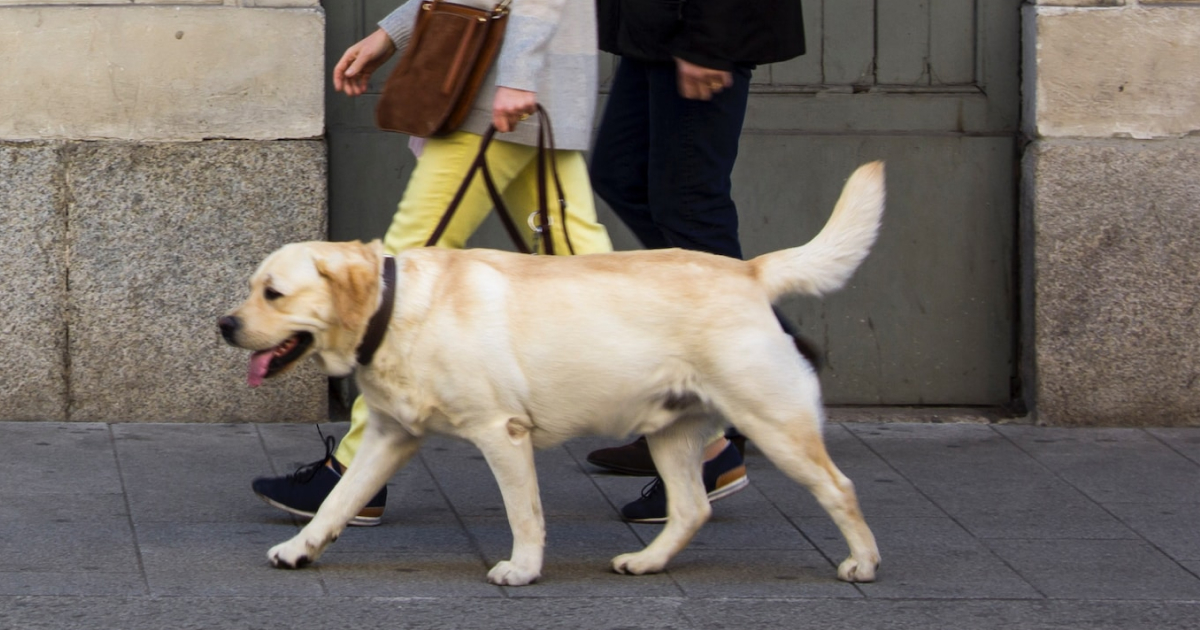
Frequently Asked Questions about Adopting a Senior Dog
Are you considering sharing your home with a senior canine companion? If so, you undoubtedly have questions about older dogs, their needs and personalities and other defining characteristics.
Here are a few questions most people ask about senior dogs:
How to tell how old a dog is?
Beyond the age of five, dogs will begin to collect a lot of tartar on their teeth, and those teeth will also be less pointed and more worn down. Dogs 10 years or older will frequently have cracked or missing teeth. Also, between the ages of six and eight, a dog’s eyes will become cloudy and more prone to discharge.
How old is a senior dog?
The general rule is that small dogs will reach their golden years between the ages of nine and 12, medium-sized breeds from seven to 10, and larger dogs between the ages of five and eight.
What is the healthiest dog food for senior dogs?
Senior dogs thrive on whole foods and healthy dog foods created from human-grade ingredients, including lean protein, fresh vegetables and high-quality grains. PetPlate’s Tail Waggin’ Turkey entrée features this exact nutritional profile, which makes it an excellent food for aging dogs.
When should you switch to senior dog food?
Once dogs reach the age range considered relatively old for their breeds, they could conceivably benefit from a change to senior dog food. However, each dog is different, so it’s okay if you wait for them to show some clear signs of aging (becoming less active, starting to put on weight, etc.) before making the switch.
How do you make an old dog comfortable?
Senior dogs are most comfortable sleeping or resting in plush beds reserved exclusively for them, preferably placed up off the floor on a couch, easy chair or bed. If jumping is difficult for them, you should supply steps or a stool so they can get up and down from their beds without struggle or strain. Their resting spots should be in rooms that are neither too hot nor too cold at any time of the day.
How do you make an old dog happy?
Senior dogs have often had a hard life, which is why so many end up in a shelter waiting to be adopted. Now that you’ve found each other, what they’ll want most from you is the same thing you’ll want from them—affection, loyal companionship and unconditional love.
What should you expect with an aging dog?
Older dogs need a lot of rest and will seek quiet places where they can sleep or relax undisturbed. They will still express great happiness and enthusiasm in your company, however. They will rank among the friendliest and most devoted pets you’ve ever had.
How much exercise is too much for a senior dog?
To prevent your senior dog from exhaustion, you should plan for them to get about half the exercise you’d give to a younger dog. If your dog still seems fresh and energetic after a walk or play session, you can gradually increase the amount of time they’re physically active.
Should I Adopt an Older Dog?
Age should not be a barrier when trying to find the ideal dog. If you open your heart and your home to a senior dog, you’ll be enriching the life of a being who truly needs you and will love you and your family without limitation or reservation. There are so many older dogs waiting to find new homes that you should have no trouble finding a perfect match.
